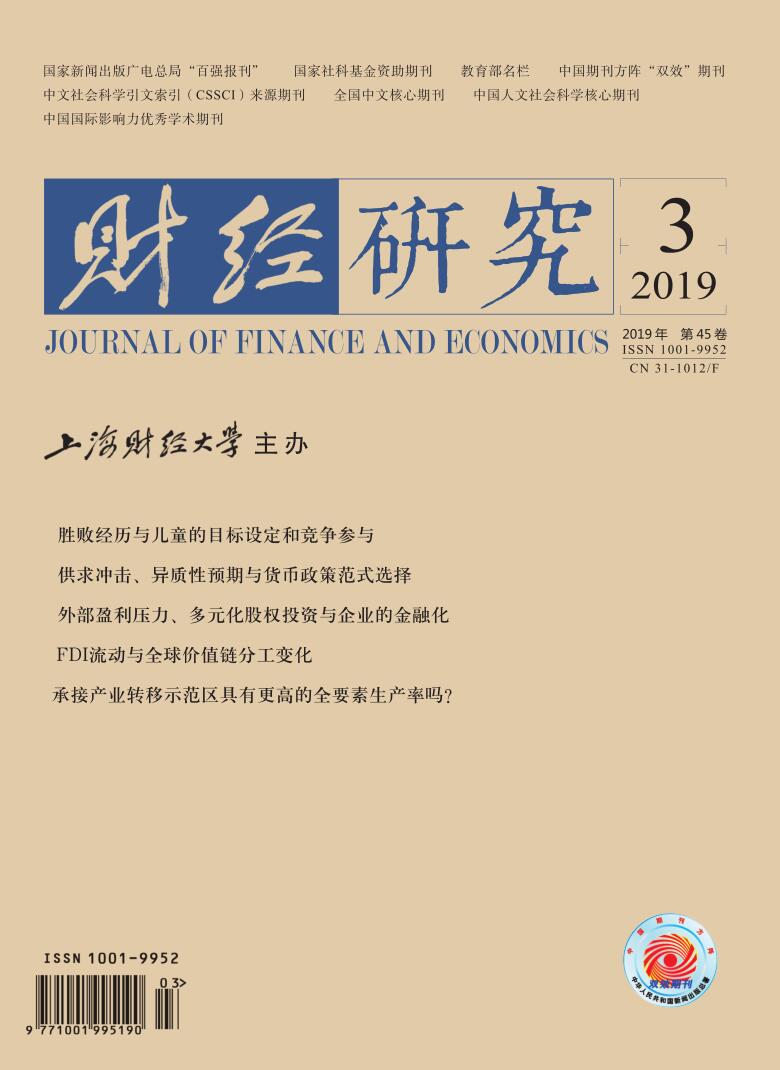With the large-scale rural labor exodus since the mid-1980s, the number of return migrants has been increasing in recent years. Prior studies mostly focus on the happiness of one-way migration from countryside to city. However, more and more migrant workers have returned to countryside from city nowadays and they have experienced two-way migration. Their happiness is likely to be shaped by two social reference points, both the countryside and the city. Based on the data collected by China Household Income Survey Project(CHIPS2013)in 2013, this study explores the impact of life experience of migration on the happiness of rural residents by employing the propensity score matching method(PSM)and instrumental variable to control the endogeneity. The main findings are as follows: First, compared with the rural stayers who have never migrated, migration experience significantly reduces the happiness of return migrants. Second, compared with the rural stayers, migrant workers are more likely to be influenced by urban environment as a new reference point, therefore suffering from a stronger " relative deprivation”. As a consequence, they tend to have a lower level of happiness. To improve the subjective well-being of the increasing scale of return migrants and to effectively explore their accumulated human capital suggest a new concern for policy-makers.
 / Journals / Journal of Finance and Economics
/ Journals / Journal of Finance and EconomicsJournal of Finance and Economics
LiuYuanchun, Editor-in-Chief
ZhengChunrong, Vice Executive Editor-in-Chief
YaoLan BaoXiaohua HuangJun, Vice Editor-in-Chief
An Empirical Study on the Happiness of Return Migrants in China: The Potential Effect of Migration Experiences
Journal of Finance and Economics Vol. 45, Issue 03, pp. 20 - 33 (2019) DOI:10.16538/j.cnki.jfe.2019.03.002
Summary
References
Summary
[1]Jiang Y, Fan X, Zhao X Y. Governance and happiness[J]. Management World, 2017, (3): 172-173. (In Chinese)
[2]Lei W. Religion, economic income and subjective happiness[J]. Journal of Agricultural Economics, 2016, (7): 98-110. (In Chinese)
[3]Li D D. Does education improve the happiness of migrant workers? Evidence from a survey of Chinese enployer-employee in 2015[J]. Economic Theory and Business Management, 2017, (1): 39-54. (In Chinese)
[4]Li H X, Lu C, Wang Y L. A structural model of the happiness of latest generation migrant workers[J]. Journal of Commercial Economics, 2014, (6): 46-48. (In Chinese)
[5]Li L L, Shi L. Economic growth and happiness: The mechanism of Easterlin paradox[J]. Journal of Sociology Study, 2017, (3): 99-124. (In Chinese)
[6]Li S, Chen G. The impact on employment by happiness: An emperical study on happiness, employment and implicit reemployment[J]. Economic Research Journal, 2015, (3): 62-74. (In Chinese)
[7]Lu Y L Z, Zhang S Y. The social adaption of returning migrant workers by the view of lifelong development[J]. Contemporary Youth Research, 2016, (3): 44-50. (In Chinese)
[8]Luo C L. Absolute income, relative income and subjective happiness: An emperical study by CHIPS dataset[J]. Journal of Finance and Economics, 2009, (11): 79-91. (In Chinese)
[9]Ma M, Xu X X, Lin X X. The determinants of reemployment of returning migrant workders: An investigation of Anhui province[J]. Chinese Journal of Population Science, 2012, (2): 95-102. (In Chinese)
[10]Tan Q X, Zhang B. The determinants of statisfaction of housing by rural residants: An investigation of 1000 households from 5 provines[J]. Chinese Rural Economy, 2015, (2): 52-65. (In Chinese)
[11]Wu Y X, Wang P, Huang C. Family shelter, institutional shelter and the conflict of famliy: The employment and subjective happiness of Chinese towns females[J]. Journal of Sociology Study, 2015, (6): 122-144. (In Chinese)
[12]Yin H P, Liu Y L. The left-behind, go-into-town and returning of rural labor during the urbanization[J]. Chinese Journal of Population Science , 2016, (4): 26-36. (In Chinese)
[13]Zhang S Y. A study on returning migrant workers: From the perspective of lifelong experience[M]. Beijing: Social Science Academic Press, 2013. (In Chinese)
[14]Zhang X E, Jiang A J, Wang L Y. The determinants of the growth of startup companies owned by returning migrant workers[J]. Corporation Research, 2012, (7): 55-58. (In Chinese)
[15]Zhou S J, Wang H C, Su Y. How can Chinese get higher happiness: An investigation on Chinese livelihood index[J]. Management World, 2015, (6): 8-21. (In Chinese)
[16]Akay A, Bargain O, Zimmermann K F. Relative concerns of rural-to-urban migrants in China[J]. Journal of Economic Behavior & Organization, 2012, 81(2): 421-441.
[17]Akay A, Constant A, Giulietti C. The impact of immigration on the well-being of natives[J]. Journal of Economic Behavior & Organization, 2014, 103: 72-92.
[18]Bian Y J, Zhang L, Yang J K, et al. Subjective wellbeing of Chinese people: A multifaceted view[J]. Social Indicators Research, 2015, 121(1): 75-92.
[19]Easterlin R A, Morgan R, Switek M, et al. China’s life satisfaction, 1990-2010[J]. Proceedings of the National Academy of Sciences of the United States of America, 2012, 109(25): 9775-9780.
[20]Jiang S Q, Lu M, Sato H. Identity, inequality, and happiness: Evidence from urban China[J]. World Development, 2012, 40(6): 1190-1200.
[21]Liu Z Q, Shang Q Y. Individual well-being in urban China: The role of income expectations[J]. China Economic Review, 2012, 23(4): 833-849.
[22]Oswald A J, Proto E, Sgroi D. Happiness and productivity[J]. Journal of Labor Economics, 2015, 33(4): 789-822.
[23]Otrachshenko V, Popova O. Life(dis)satisfaction and the intention to migrate: Evidence from central and eastern europe[J]. The Journal of Socio-Economics, 2014, 48: 40-49.
[24]Simpson N B. Happiness and migration[A]. Constant A F, Zimmermann K F. International handbook on the economics of migration[C]. Cheltenham, UK: Edward Elgar Publishing Limited, 2013.
Cite this article
Xu Hui, Liang Jie, Lai Desheng. An Empirical Study on the Happiness of Return Migrants in China: The Potential Effect of Migration Experiences[J]. Journal of Finance and Economics, 2019, 45(3): 20-33.
Export Citations as:
For
ISSUE COVER
RELATED ARTICLES




 5718
5718  10264
10264

